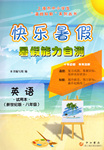��Ŀ����
����Ŀ���ٶ�����������������ʦMr. EvansҪ��������������ȥ��һ��Ӣ����ʷ�Ľ���������ʲ��ܲμӡ�����дһ������Mr. Evans��Ǹ��˵�������Ҫ�����£�
1.��ʾǸ�⣻
2.���ɣ�����ȥ�������ĸ������סԺ��Ҫ���չˣ�
3.ѯ�ʣ��Ƿ���¼�����Ա㲹��������
ע�⣺
1.����100���ң�
2.�����ʵ�����ϸ�ڣ���ʹ�������
3.��ͷ��ͽ�������Ϊ��д�á�
Dear Mr. Evans,
____________________________________________________________________________________________
____________________________________________________________________________________________
____________________________________________________________________________________________
____________________________________________________________________________________________
____________________________________________________________________________________________
____________________________________________________________________________________________
____________________________________________________________________________________________
____________________________________________________________________________________________
____________________________________________________________________________________________
____________________________________________________________________________
Yours sincerely,
Li Hua
���𰸡�Dear Mr. Evans,
I am indeed sorry to tell you that I won��t be able to attend the lecture on English history tomorrow afternoon. My mother suddenly fell ill and was taken to hospital last night and my father is on a business trip to Beijing now. I am afraid that I will have to take care of her these days.
However, I am actually very interested in English society and history. I wonder if it is possible for the talk to be recorded, and if so, could I borrow the tape? It would mean a great deal to me to listen to the tape and learn what is covered in the talk.
Please allow me to say sorry again. I sincerely hope that you will be able to understand my situation and accept my apology.
Yours sincerely,
Li Hua
�����������⿼��Ӧ�����е����ŵ�д����������ݸ����������ʦMr. Evansдһ������������Ҫ�㶼�Ѿ���������������ĵĹؼ�����Ҫ��Ҫȫ���������������©��ʡ�ԡ�����Ҫ��ֻ����٣�������Ҫ�ڴ˻���������ϸ�ڣ���Ҫ������䷭�룬ͬʱע��ıƪ���ֵ�˳�����ú��ʵ����Ӵ�����ȫ�ģ�ͬʱѡ����Ĵʻ�����Ŀ�����¸����IJɡ�����ʱע�Ȿ��ʹ��һ������ʱ������Ҫ����ѡ��������ԣ����ú��ʵ������ʹʻ�Ѹ�Ҫ�㶼ȷ���������ѵ�����ѡ��ʻ�;��ͣ�����������ø��ʻ�̶�����ȷ��������Ҫ���ʵ������Ӵʱ������������������������Եø����ᡣ
������������(1)I wonder if it is possible for you to record the lecture, and if so, could I borrow the tape? (2)It would mean a great deal to me to listen to the tape and learn what is covered in the talk.�����仰����it����ʽ����ͱ���Ӿ���
My mother suddenly fell ill and was taken to hospital last night and my father is on a business trip to Beijing now.���Ϊ���о䣻
(1)I am indeed sorry to tell you that I won��t be able to attend the lecture on English history tomorrow afternoon. (2) It would mean a great deal to me to listen to the tape and learn what is covered in the talk. (3)I sincerely hope that you will be able to understand my situation and accept my apology.���������˱���Ӿ䡣

 ���������������Բ��������ϵ�д�
���������������Բ��������ϵ�д�����Ŀ�����������������������������Tom���ڰ������Ĵ����Σ�������ѯ���й����ξ���������������±����ṩ��Ҫ�㣬дһ����ţ�����ʾ�������ĵ�����
������Դ | �������������ķ羰��ʤ���磺��կ��(�����ˮ�峺���ף�ɫ�ʰ��)��������ˮ������(2000������ʷ�����ڷ������ã� |
�����Ϣ | �������ˣ���ͨ���� |
ע�⣺1.����100���ң��ŵĸ�ʽ����ͷ��Ϊ��д��(�������ܴ���)��
2.�ɸ�������Ҫ���ʵ�����ϸ�ڣ���ʹ�������ᡣ
3.�ο��ʻ㣺ʡ�ݡ�province��������ˮ�����̡�Dujiangyan Irrigation Project��կ����Jiuzhaigou
Dear Tom,
I��m glad to hear that you��re coming to Sichuan in August.
____________________________________________________________________________________________
____________________________________________________________________________________________
____________________________________________________________________________________________
____________________________________________________________________________________________
____________________________________________________________________________________________
____________________________________________________________________________________________
____________________________________________________________________________________________
____________________________________________________________________
Yours sincerely,
Li Ming